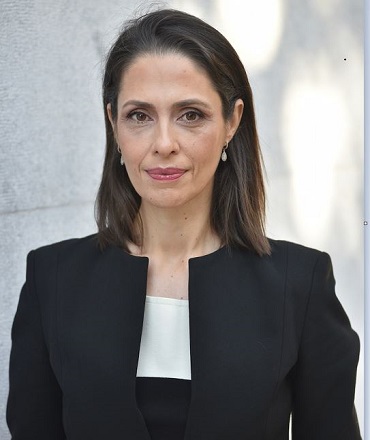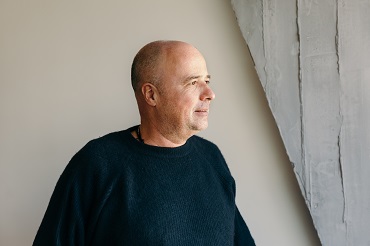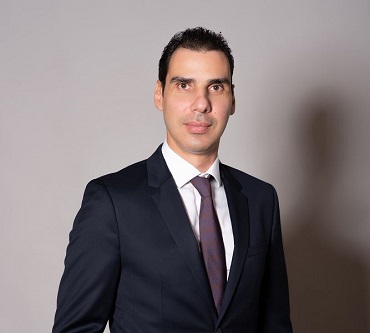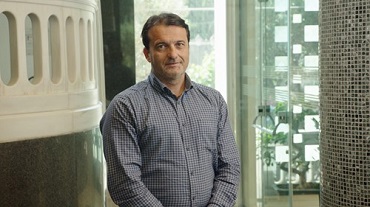Health
Anna Kynthia Bousdoukou
On Tuesday, 23 November 2021, the SNF Dialogues held an open, public discussion on the essential human right to health.
The availability and quality of care, as well as the questions of access and ethics, were among the central themes of the live Dialogues webcast. Discussion between the audience and the speakers during the 48th SNF Dialogues event covered how the Covid-19 pandemic highlighted - in the most tragic way - the unpreparedness of health systems worldwide, our future after the pandemic, and more.
Students from the health sector who participated in the dialogue raised concerns about Greece’s medical student and resident training, the challenges they face in their studies, the need to evaluate professors, and the fact that many see their degree largely as a passport for going abroad.
Major studies have shown that life expectancy is determined more accurately by one’s postcode than by their genes. At the moment, there can be as much as a 10-year difference in life expectancy from postal code to postal code.

Effy Vayena, Professor of Bioethics at the Swiss Institute of Technology (ETH) and Chair of the Greek National Bioethics and Technoethics Commission
Effy Vayena, Professor of Bioethics at the Swiss Institute of Technology (ETH) and Chair of the Greek National Bioethics and Technoethics Commission, said, “Major studies have shown that life expectancy is determined more accurately by one’s postcode than by their genes. At the moment, there can be as much as a 10-year difference in life expectancy from postal code to postal code.” On the impact of the pandemic, she said, “Most countries were unprepared for the pandemic. We are struggling with a difficult situation. The question is what we can learn right now. We are not done with the pandemic, but there is an important lesson to be learned about health literacy and trust in scientific knowledge and the health system.”

As the SNF, we are not here to replace state-provided healthcare, but to complement it. And this complementing is always done in a spirit of cooperation, with the common goal of getting things right, to give young people hope.
Referring to the role of private initiatives, the Stavros Niarchos Foundation (SNF) Co-President Andreas Dracopoulos commented, “As the SNF, we are not here to replace state-provided healthcare, but to complement it. And this complementing is always done in a spirit of cooperation, with the common goal of getting things right, to give young people hope.” On the impact of the pandemic, he said, “We all need to understand that we are at war, because it is a global pandemic that has affected everyone and everything. We should depoliticize what is happening today. There is light at the end of the tunnel, because I believe we are in the last wave of the pandemic. It’s all about what we have learned and what we’re going to do while we are emerging from this period. I don’t think we have learned a lot; I don’t believe we will be better prepared next time, not only in Greece but worldwide.”
General Secretary of Primary Health Care at the Greek Ministry of Health, Marios Themistokleous, while discussing how Greece fared in the pandemic, said, “Compared to other countries, we seem to have done well this time. We have seen countries with health systems much better than ours, and with prior experience, brought to their knees. For example, Italy, the United Kingdom, Belgium are some of the countries that have much more developed health systems and funding that exceeds ours by 25-30%.” He added, “With the grant from the Stavros Niarchos Foundation for ICU beds, we managed to reach the EU average for intensive care beds.”
“The importance of self-sacrifice by medical staff—and especially nursing staff—is something that I could not possibly overstate. It is definitely an important lesson of the pandemic: in hard times, we must unite,” said Dr. Panagiotis Koulouvaris, Assistant Professor at the First Orthopedic Clinic of the National and Kapodistrian University of Athens, President of the non-profit initiative Regeneration and Progress, and SNF Health Advisor. He also spoke about health services in Greece outside of Athens and the work of Regeneration and Progress. “The efforts of the SNF are a prime example of successful public-private partnership, because the public sector could not possibly meet this need on its own—for many reasons. Let’s take, for example, the island of Agathonisi, with its 120 residents, where it is not possible to send a specialized doctor to stay for multiple months, because, as you can understand, you would practically be decommissioning the doctor, and the government doesn’t have the ability to visit every 14-16 months with a team of about 30 people, of 15 different specialties, to do a full check-up for locals. But we have the ability to be there, thanks to a major grant from SNF.”
Panos Papoulias, SNF Chief Operating Officer and SNF Health Initiative Managing Director, talked about the Foundation’s many years of grantmaking around the world in the field of health. “We recognize that society and the public sector have awareness of the needs that are out there, and we need to pay attention to them. We must do this. It is our mission.” While discussing the SNF’s Health Initiative, a series of infrastructure and education projects with a total budget of more than $500 million aiming to strengthen the health sector in Greece, he commented, “It is no coincidence that the three pillars of this initiative, the three new hospitals, are located away from Athens, namely in Sparta, Komotini, and Thessaloniki. The Health Initiative is a large umbrella of health grants, which includes 14 sub-projects. It has three main goals, which are accessibility, ensuring the provision of high-quality services, and the empowerment of medical staff.”
Creating further opportunity for public discussion around this critical topic, the SNF Nostos Conference 2022 will address the theme of health between June 23 and 24.
The SNF Dialogues are curated and moderated by Anna-Kynthia Bousdoukou and are held through the journalism non-profit organization iMEdD (incubator for Media Education and Development).
*The opinions expressed by Dialogues participants, whether officially representing institutions and organizations or themselves alone, at events, in articles, or in other audiovisual media are solely their own and do not necessarily represent the views of the Stavros Niarchos Foundation (SNF) or iMEdD. Speakers’ remarks are made freely, without prior guidance or intervention from the team.





